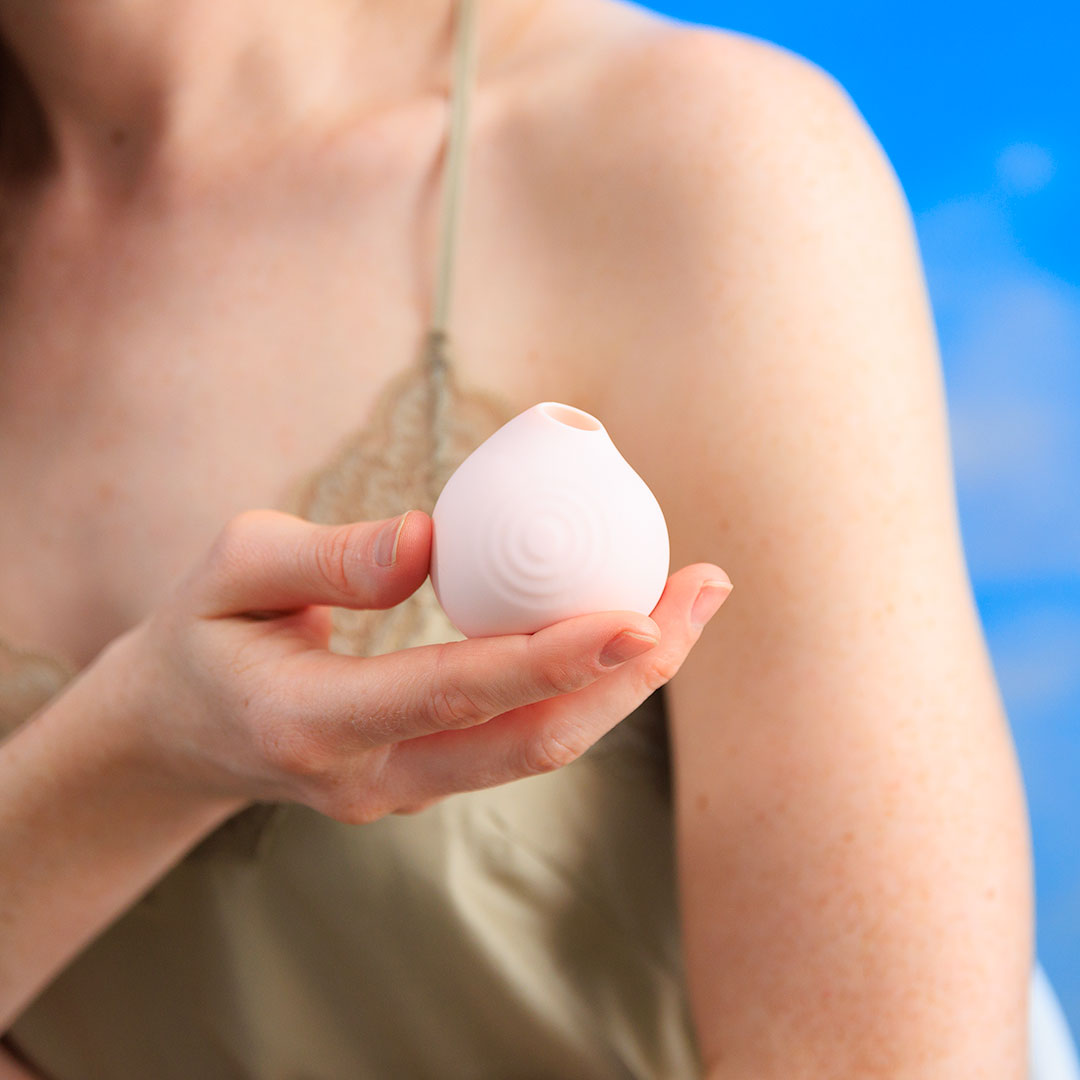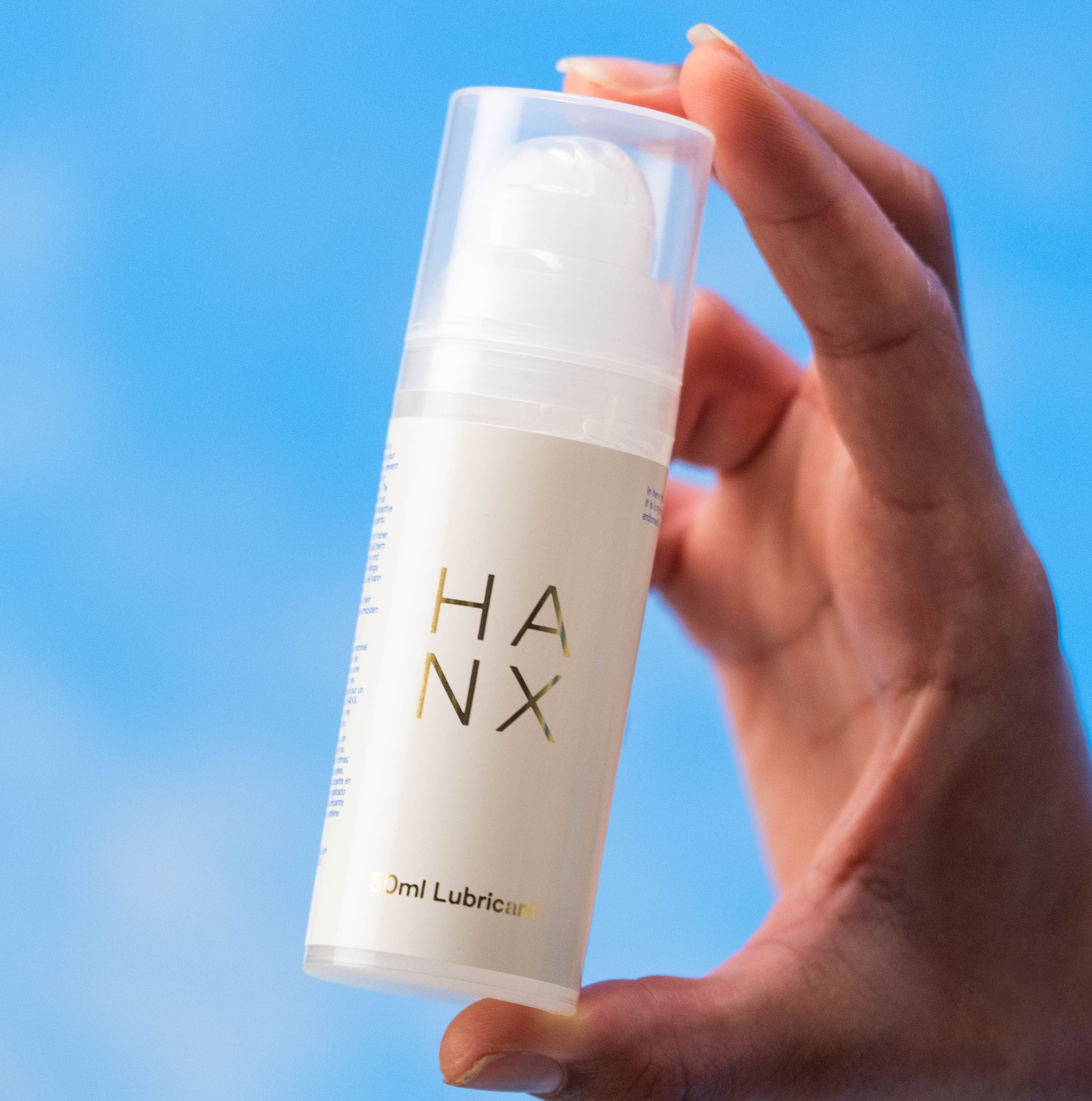Menopause's Uncomfortable Secret: Vaginal, Vulval and Clitoral Atrophy
There are some things about menopause that nobody really talks about. Hot flushes? Yes. Mood swings? Absolutely. But vaginal dryness, vulval thinning, and the gradual shrinking of genital tissue? That conversation rarely happens in GP's offices, over dinner with friends, or even in the privacy of our own homes.
This World Menopause Day, we want to hold space for an open conversation about one of the lesser discussed symptoms that massively impact pleasure: Genitourinary Syndrome of Menopause (or GSM, as it's now known medically). Also called vulvovaginal atrophy, it’s one of the major changes that can happen to the vulva, vagina, urethra, and bladder when oestrogen levels drop. It's significant. It's real. Yet so many are left feeling that they’re only ones whose bodies are changing in ways that feel embarrassing or wrong.
Just How Common Is This?
For a condition that often flies under the radar conversationally, research shows that between 65% and 84% of women in the first six years after menopause experience GSM symptoms. Yet despite these staggering figures, only around 7% of women seek help from their GP.
The British Menopause Society calls it "the silent epidemic": a condition so prevalent yet so invisible that the majority of women suffering are simply accepting their symptoms as a normal, inevitable part of aging. Vulvovaginal atrophy symptoms sometimes appear a few years after menopause, making it difficult to make the connection and access appropriate treatment. Frustratingly, as often is the case with women’s health, lack of education about the condition means some turn to over-the-counter lubricants and moisturisers which don’t always help. Others find that their symptoms gradually worsen because they're not getting the medical support they need. Some end up avoiding sex or masturbation altogether.
Our Co-Founder and women’s health expert, Dr Sarah Welsh, witnessed the psychological impact of GSM on patients whilst working in NHS gynaecology. Put simply, it just can’t be overstated. It’s not okay that women end up suffering in silence due to the shame and stigma surrounding this very normal biological process.
What Actually Happens
Why does vulvovaginal atrophy happen? During menopause, oestrogen production plummets by as much as 95%. This hormone has been keeping the tissue in your vulva, vagina, and urethra thick, elastic, lubricated, and well-supplied with blood. When oestrogen withdraws, so does that support system.
The vaginal tissue becomes thinner and more fragile and the vulva may lose volume and elasticity. The vaginal pH shifts from acidic to more neutral, which changes the balance of protective bacteria and can lead to increased infections. Vaginal lubrication can decrease dramatically, and heartbreakingly for those who value pleasure, even the clitoris can atrophy - becoming smaller and less responsive.
For many women, this translates into: burning, itching, dryness, pain during intercourse, urinary urgency and frequency, recurring urinary tract infections and frustration at the loss of a happy, healthy sex life.
What's particularly important to understand is that these symptoms often don't appear until several years after your last period. By then, many women have stopped associating their symptoms with menopause and simply assume they're a permanent fixture of aging. They don't seek help because they don't realise help is available.
Why We Need to Start Talking About This
When women are being pushed out of the workplace due to lack of recognition and support during menopause, it can be easy to put diminished sexual satisfaction wayyy down on the list of things to tackle. Here’s the thing: sexual intimacy matters. It's not frivolous. It's not shallow. It's a core part of our wellbeing, our relationships (including with ourself) and our sense of self, too. Yet, whilst hot flushes have crossed the barrier to feature in the pop culture lexicon, discussing vaginal dryness or clitoral atrophy feels transgressive.
The impact is profound. When intercourse becomes painful, women often withdraw from sex entirely. Partners may feel confused or rejected. Relationships can become strained. And women themselves often internalise the message that their bodies are "broken" or that their desires simply matter less now.
The truth is, pleasure doesn't have an expiration date. Your sexual health and satisfaction don't become less important in your 50s, 60s, 70s, or beyond. You deserve to feel comfortable in your body. You deserve to experience pleasure without pain. You deserve better.
Part of talking about this means removing the shame. It means normalising the conversation with healthcare professionals. It means acknowledging that this is a medical condition with real, evidence-based treatments—not something you should just endure quietly.
The good news? This is a highly treatable condition. You don't have to suffer.
GSM Treatments in the UK
Local Vaginal Oestrogen is the most effective treatment for vulvovaginal atrophy. It comes in several forms: pessaries, creams, gels, or a vaginal ring. It works directly on the tissue to restore thickness, elasticity, lubrication, and healthy pH balance. The dose is extremely low and safe to use long-term. Treatment typically starts with a three-month course, and it can be used alongside systemic HRT if needed.
Non-hormonal alternatives like moisturisers and lubricants are available on prescription and over-the-counter, though they provide shorter-term relief.
Vaginal laser therapy shows promise for improving dryness and discomfort, though NICE currently recommends it be used only within research trials until more long-term safety data are available.
If you suspect you might be experiencing vulvovaginal atrophy, start with a conversation with your GP. Your doctor should discuss treatment options that suit your individual circumstances, medical history, and preferences. The evidence is clear: around 67% of women who receive treatment report positive effects. Starting treatment early helps restore normal tissue anatomy and prevents more severe changes. However, as we’ve found whilst speaking to our community, heading to the GP isn’t always a guarantee of compassionate, considered care…
A Better Standard of Care
The reality is that many women are still not getting adequate support when it comes to intimate health. 67% of our community told us that they’ve experienced difficulty accessing specialist women’s health/gynae care. Too many are being dismissed, their menopause symptoms ignored, or being told to simply accept what's happening as "normal ageing." Beyond menopause, many of you described delayed diagnoses, being dismissed by healthcare professionals, struggling to get appointments, and feeling let down by a system that should be supporting you.
We agree: it's not good enough. And we're doing something about it.
We’re proud to partner with Dr Morton's Women’s Health. Dr Morton's is an online women's health service built on a simple principle: quality, compassionate healthcare that works around your life, not the other way around. Founded by Dr Karen Morton, an experienced obstetrician and gynaecologist, the service offers fast, judgement-free support from expert doctors who actually listen. From sexual health to intimate concerns and everything in between, you can get answers without long waiting times, endless referrals, or dismissive experiences. It can be hard to know who to turn to, but we are huge advocates for their service: Dr Morton actually taught our own Dr Sarah Welsh when she was studying gynaecology at medical school!
As a member of the HANX community, you can get 10% off Dr Morton's services automatically - no code needed. Because access to compassionate, expert care shouldn't be a privilege. It should be a right. Learn more here.
Moving Forward
If you're experiencing symptoms of GSM, please know that you don't have to suffer in silence. Start by having a conversation with your GP and if you're not heard or supported, don't give up - consider seeking a second opinion. Look into services like Dr Morton's Women’s Health that are specifically designed to take your concerns seriously. Connect with other women going through the same thing - and actively tell your friends, sisters, partners and fellow menopausal peeps what to look out for.
The silence ends here.
Want more?
-
Find out how Dr Morton’s Women’s Health combines kindness and specialty care to truly support women. Read more.
-
Discover HANX Menopause Support - a natural life stage supplement to support through this transitional life stage. Shop now.
-
Weight fluctuation in menopause is common but can be a taboo topic. Find out why it happens and how you can navigate it here.






















